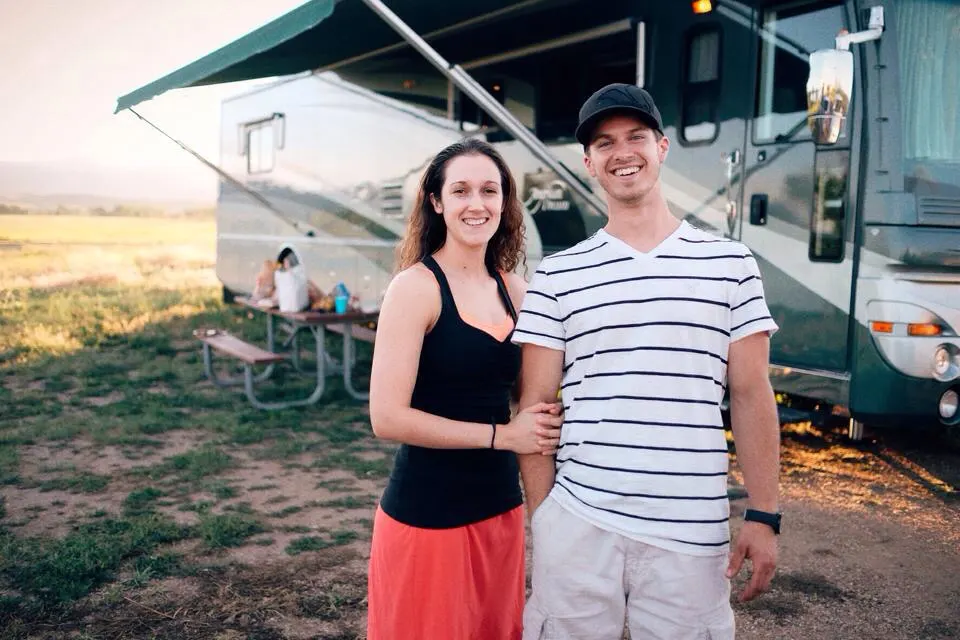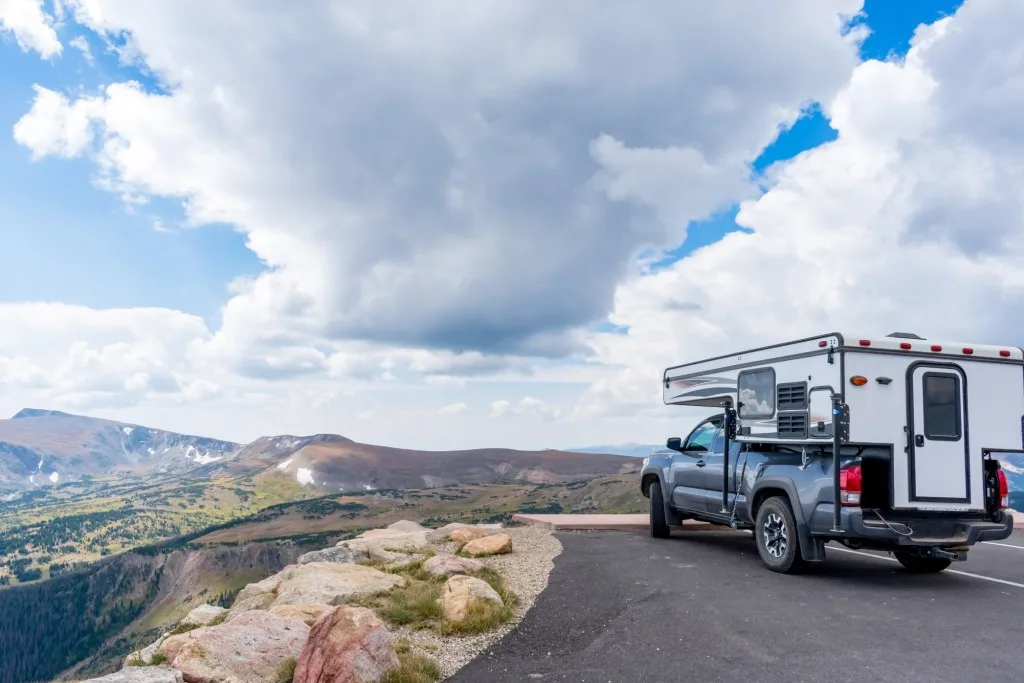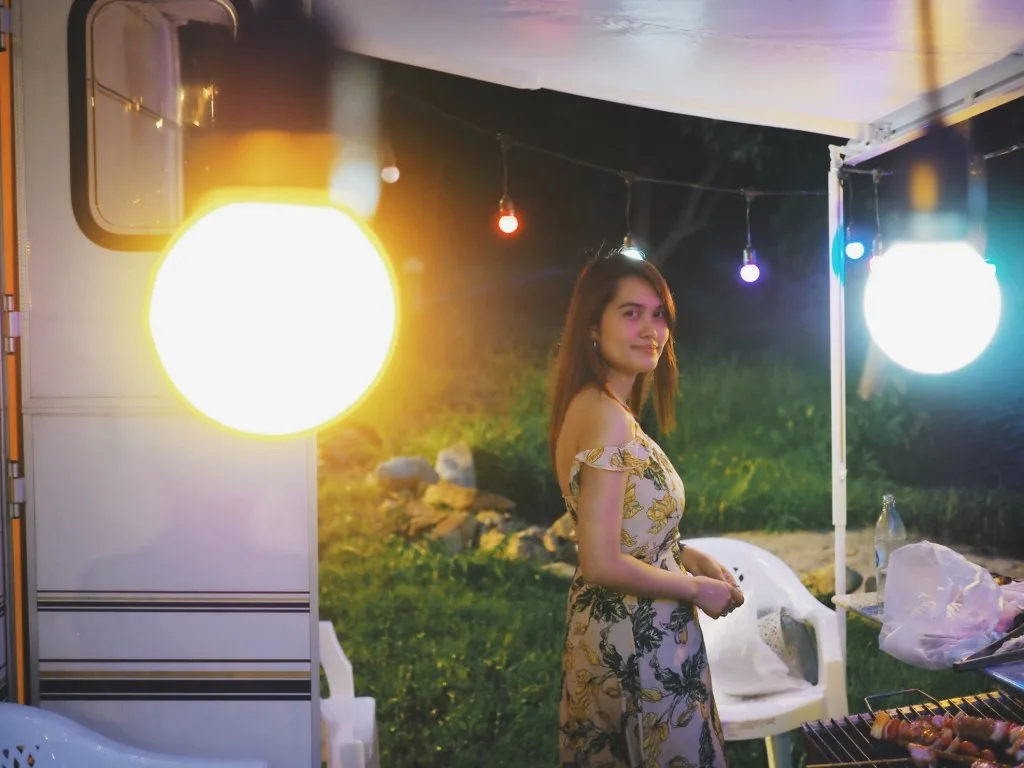Camping Nightmare: “I Bought the Wrong RV”
If you’ve talked to any number of RVers, chances are you’ve heard a horror story or two about RV campers that just weren’t the right size for their owners.
From bus-sized behemoths to cramped teardrop trailers, there are plenty of pitfalls you should be aware of when buying an RV for the first time.
A reader recently wrote in: “After my first season of camping, I realized the RV was too big…basically, I bought the wrong RV. How do we move forward?”
We’ve broken down some important things to think about to help avoid serious trouble for first-time buyers.
Let’s take a look!

A Brief Overview of RV Types by Size
There are a few crucial distinctions you’ll need to know before considering the finer points of the right camper size. First, you have motorhomes. These are RVs that combine the living space and vehicle into one single package.
We can break these up into classes A, B, and C.
Class As are what many people think about as a typical motorhome: large, long, with a large front windshield, and often resembling a bus. These generally include the most interior space, sleep the most people, and come with the most amenities.
Class C is the next size smaller and can resemble a combination of a truck and class A RV. It may use a truck chassis and have side exterior doors much like a car or truck would. There’s often a small sleeping space above the cab.
Class Bs are the smallest, similar to large vans. These may include “wet bathrooms” (bathrooms where the entire space is used for showering, including the closed toilet) if they include any bathroom at all. These are generally more suited to shorter trips than full-time life, especially if you’re not traveling alone.
Alternatively, you can opt for a towable RV, where you tow your living space behind an SUV or truck. The two primary categories of these are travel trailers and fifth wheels. The main difference between them is how they attach to your tow vehicle.
A travel trailer will connect using a traditional hitch, while a fifth wheel will require a special mount attached to the bed of your truck.
Fifth wheels generally have more space and amenities, while travel trailers are often more affordable and versatile.
Pro Tip: Unsure what RV size is best for you? Take a look at The Pros and Cons of RV Class Types.

How to Pick Out the Right RV Size
Now that you understand the differences between the major RV types let’s consider the details of your particular situation. Let’s dive in.
Family Size
Are you buying an RV for just yourself? Do you have a partner or a pet you’re bringing with you? Or do you even have kids or a larger family who will be coming along?
The answer to this question is crucial in determining the right camper size.
Singles and couples may travel and live in a class B, small class C, or travel trailer. Families with kids and pets may want to opt for a class A or fifth wheel to ensure everyone has enough space.
Necessary Belongings
RV travel requires downsizing from just about everyone. You’ll need to consider how much you truly need to bring with you. For example, are you comfortable with just a few sets of casual clothes, or do you need wardrobe space for extra outfits?
Do you have any hobbies or outdoor activities you’ll be doing when you use your RV and do these activities require equipment?
Think about what you plan to do on a typical trip or typical day and plan out your space.

Pets
For many of us, pets are as much a part of the family as people and will need to come along in the RV. Is there space for your dog or cat to sleep, eat, and relax? Will they feel cooped up in a tiny room during times you can’t take them with you?
Many pet owners look for RVs or trailers with space that they can modify for pet beds, litter boxes, and other things.
Tow Vehicle
Sometimes a tow vehicle means a smaller car you’re bringing along for daily use. Sometimes it means the vehicle towing your RV. For the former, ensure your chosen motorhome has the towing capacity for the weight of your vehicle.
For the latter, it’s crucial to consider how much towing capacity your SUV or truck has. If your tow vehicle can’t handle your RV, it could result in a dangerous situation.

A Camper That’s Too Big Is Better Than a Camper That’s Too Small
Realistically, buying a motorhome or trailer is a decision you’ll have to live with for a while, even if it’s the wrong choice. If you’ve never bought one before, it can be hard to gauge your needs.
Still, unless budget is your top priority, it may be better to err on the side of a larger RV. You may find there’s space you don’t use or need, but it’s still preferable to feeling squeezed by a too-small camper.
The Dangers of Getting an RV That Doesn’t Fit Your Size Needs
Getting the right camper size is essential. Let’s look at some ways having the wrong RV can be a pain.
Relationship Stress
If you and a partner are stuck in too small a space for too long, even small things can begin to get on each other’s nerves. No matter how strong or long-lasting your relationship, living in tight quarters can lead to uncomfortable situations.
Travel Stress
This may apply more to campers on the larger end of the spectrum. While that 40-foot rig may have the second bathroom and outdoor kitchen you were pining for, you may find it’s simply too large and unwieldy for you to handle on the roads.
However, you may also find travel is stressful in a too-small camper if you struggle to fit everything you need or want inside. Traveling with an RV is supposed to be fun.
Don’t let a poor choice in size turn it into a stressful nightmare.

Lack of Privacy
Even the biggest campers and RVs often struggle to provide sufficient privacy for larger groups. If you end up purchasing one that’s too small, you’ll only make this issue worse.
Think about everything you do in a day and whether you feel comfortable doing it in the close quarters of a small rig.
Overall, It’s Not a Good Time
Whether it’s too big or too small, making a bad decision about the size of your RV will result in less fun for you and those traveling with you.
You’ll either spend too much time maintaining a large rig, struggling to drive it on the roads and find suitable campsites, or find the lack of privacy and space stifling. Erring on either side too much can turn an RV dream into a nightmare before you know it.

Try Out RV Size Before You Buy It
One of the easiest ways to ensure you’re buying an RV that’s right for you and your fellow travelers is simply to try one out! Numerous RV rental services, both national and local, can provide you with rental RVs of all shapes and sizes.
You’ll get to spend a few days living in a rig similar to your potential new home. If it’s not right, all you’re out is the rental cost.
On the other hand, if you find it fits you, you can approach the buying process with extra confidence.
Your RV’s Size Won’t Always Be Perfect the First Time
We’ve talked a lot about the dangers of buying an RV that isn’t right for you. By keeping these principles in mind, you can avoid the most serious mistakes. Still, it’s not an exact science.
Your needs may change, or you might find what worked for you initially doesn’t for the long-term. While no one likes to take the hit of selling a camper and buying a new one, it may be worth it to find yourself a suitable RV.
Do you have any tips for buying an RV?
We’ll Help You Find the Best Free Camping in the USA
You should give it a try!
As a matter of fact, these free campsites are yours to enjoy. Every time you pay federal taxes, you’re contributing to these lands.
Become a FREE CAMPING INSIDER and join the 100,000 campers who love to score the best site!
We’ll send you the 50 Best Free Campsites in the USA (one per state). Access the list by submitting your email below:
Not sure that it is really possible to buy the “right” RV all the time. We did pretty good with our first RV back in 1995, a 27′ Itasca Class A. However, 20 years later it was showing its age and we wanted to replace it with another newer and smaller RV and this is where we ran into trouble finding our “right” RV. Our next RV we bought at the Pomona RV show in 2015. A Class C/B+ 22′ Pleasure Way that we loved even better because of its superior quality and shorter length! However, we didn’t realize it, that the Murphy Bed was too much of a pain for us (you may think differently) to make up each night and convert back to a couch each morning. After a year-and-a-half of trying, we traded it for another small Itasca Class A (25-1/2′ and with a permanent bed) built on a Sprinter chassis. However, once again, we found out that maintenance and repair of this Mercedes-Benz chassis was too expensive. So after 4-and-a-half years of this RV and 1-and-a-half with the Pleasure Way, we are still looking for our “right” RV.
The biggest consideration for me was HOW I prefer to camp. I don’t enjoy most RV parks, feeling packed in like a sardine. I was willing to give up living space to gain the ability to camp off grid and in dry campgrounds with more privacy. I’m typing this from BLM land with no one else in sight and 360 degree views. A small rig kind of forces you to get out of your rig more, rather than staying in it.